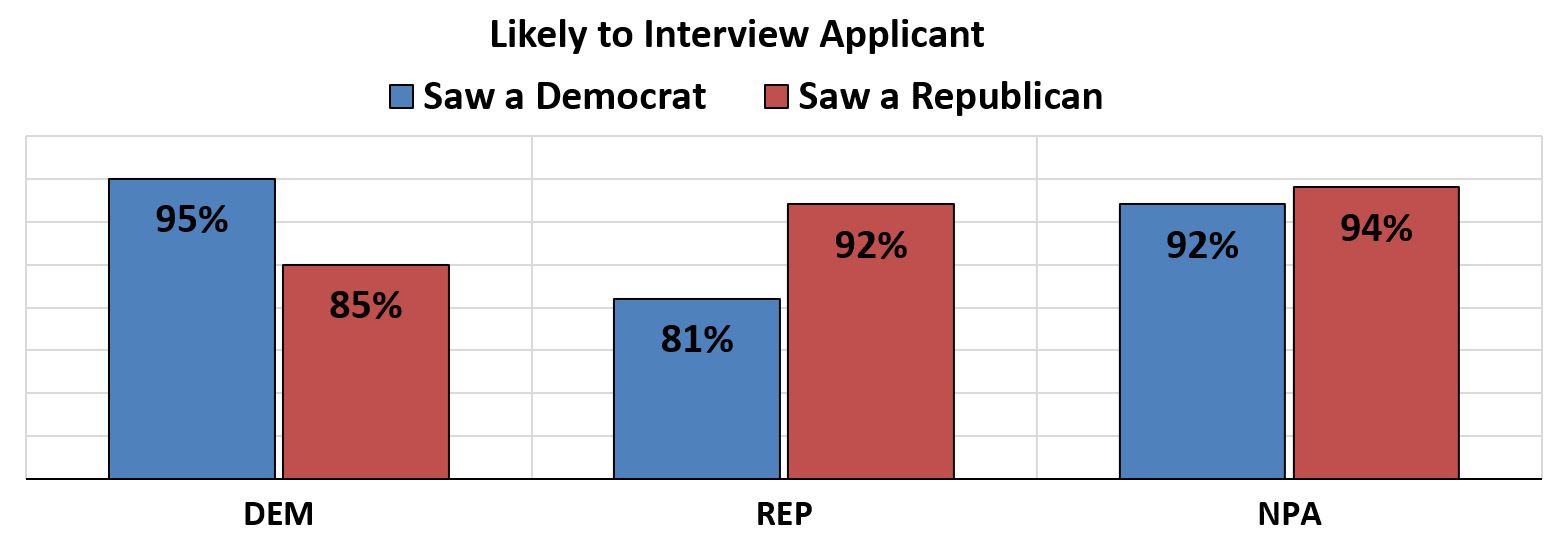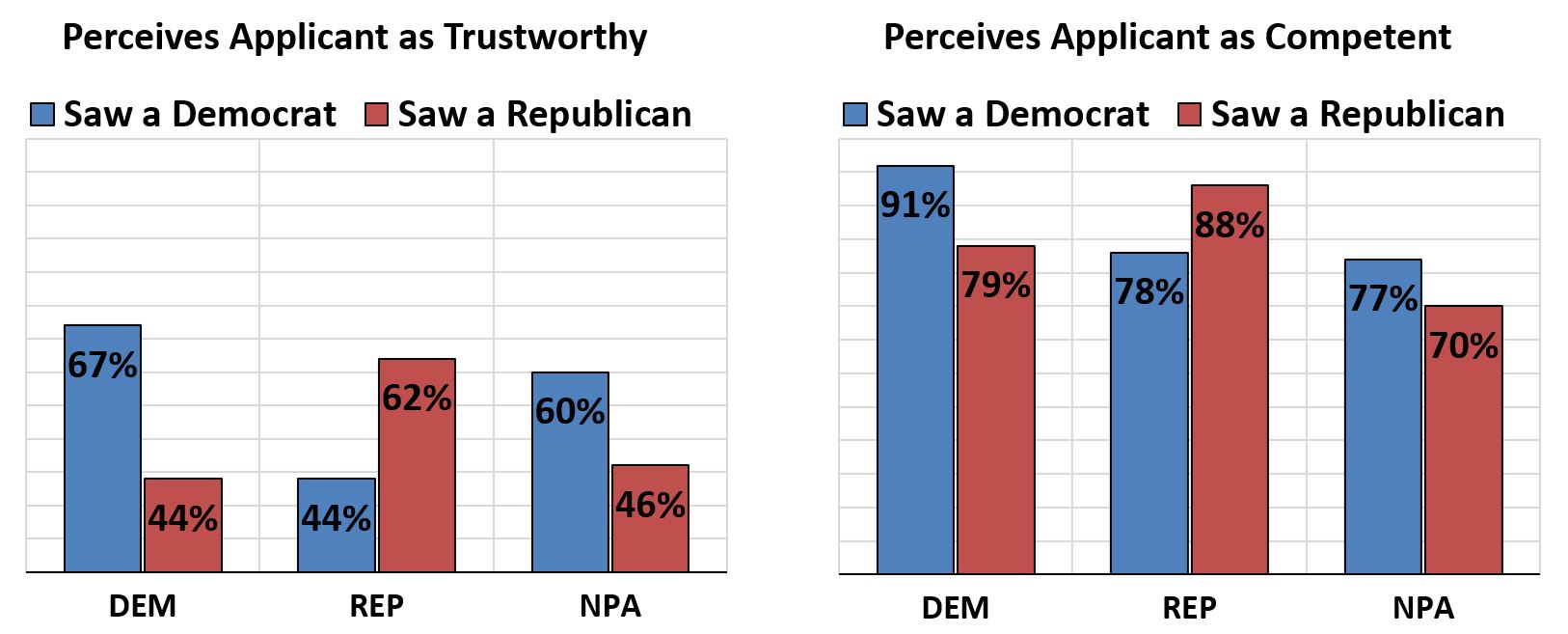We know that Democrats tend to vote for Democrats, and Republicans for Republicans. But what happens when the “candidates” are instead job applicants: Does this same bias take hold?
Do job applicants with a political bent (either evident from their resumes or discoverable through social media) risk discrimination in their job hunts?
Sachs Media Group recently tested this through an experimental design we built into a random sample survey of 1,000 Florida voters. Respondents were randomly assigned to see one of two resumes for a position as a junior-level IT specialist.
These two resumes were the same but for one exception: For half, the resume identified the applicant as Vice President of the “Fairfax County Young Republicans,” while the other half showed the same position with “Fairfax County Young Democrats.” This piece of information was just one of many presented on each resume, and was not any more prominent than any other credential describing the applicant’s experience or educational background.
As you can see, the contents of the resumes were otherwise identical.
The findings show that a strong – and statistically significant – bias favoring members of one’s own political party takes hold in the context of hiring.
The extent of this bias is the same for Republicans and Democrats, each favoring “their own” in about equal measure. Voters without a party affiliation (NPA) show less bias overall, but at a base level have more favorable views toward Democratic applicants.
The first question addressed how likely respondents would be to call the applicant in for an interview using a four-point scale from very likely to very unlikely. Democrats were 12% more prone to provide an open door if the applicant was seen as a fellow Democrat, while Republicans showed a similar 14% bias toward Republicans. Specifically, 95% of Democrats said they’d be likely to call a fellow Democrat in for an interview, while 85% of Democrats said they would do so for a Republican. Likewise, 92% of Republicans said they’d call a fellow Republican in for an interview, compared with 81% among those who viewed a Democrat’s resume.
Then, we asked respondents to rate the applicants on perceived trustworthiness and competence.
Again, partisans showed a statistically significant bias favoring applicants who they believed were members of their own political party:
» Among Democrats, 67% rated the applicant as trustworthy if they thought the person was also a Democrat, compared with 44% among those who supposed the applicant was a Republican (a 52% bias).
» Among Republicans, 62% considered applicants they presumed to be fellow Republicans as trustworthy, compared with 44% among those who thought the applicant was a Democrat (a 41% bias).
Results on competence were overall more favorable – perhaps because competence is more easily communicated through a resume than is trustworthiness – but the patterns of bias remained the same:
» 91% of Democrats rated the applicant as competent if they believed the person was a Democrat, compared with 79% among those who perceived competence if they thought the applicant was a Republican (a 15% bias).
» 88% of Republicans rated as competent an applicant they believed was a Republican, compared with 78% among those who thought the applicant was a Democrat (a 13% bias).
Comparatively, Republicans appear somewhat more skeptical or less trusting than Democrats, even when it comes to rating members of their own party. However, Democrats appear more biased or less objective than Republicans in the degree to which they favor members of their own party.
So what does this mean?
First, on a practical level, job hunters who don’t wish to limit their opportunities should recognize the risk in sharing their political views where prospective employers may see them. These job hunters would be well-advised to stick with touting their marathons or Eagle Scout status instead.
But that’s not always easy, considering the trails we so readily leave on social media through posts, comments, likes, and more.
Which brings us to the second rumination: Just as neighborhoods have become more politically polarized through self-selection and attrition, so too may our workplaces. Not necessarily because of conscious bias, but because even small amounts of preferential treatment can add up in meaningful ways.
Currently, political affiliation discrimination is only prohibited against federal government employees, with other types of workers having similar protections in only a handful of states.
A diversity of thought in the workplace is almost always a good thing. So it’s up to all of us, right and left and center alike, to check ourselves from making gut assumptions about people and keep an open mind toward those around us.
Karen Halperin Cyphers, PhD, is vice president of research with Sachs Media Group. You can reach her at karen@sachsmedia.com.















